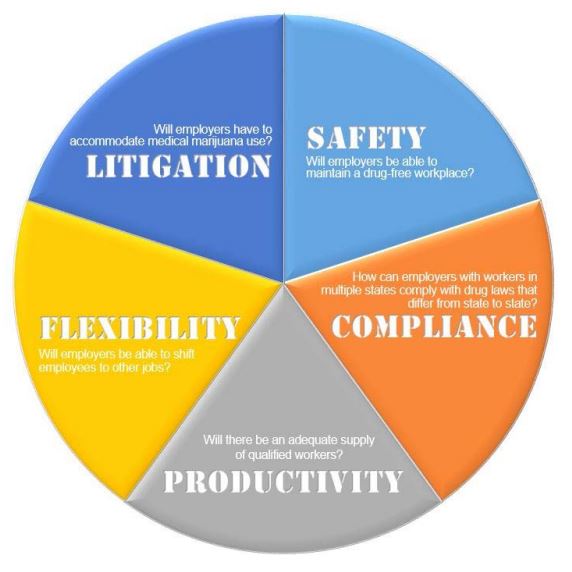
The RIMS External Affairs Committee has issued a new Legislative Review discussing the challenges risk professionals may face regarding the cannabis laws in the United States.
Available exclusively to members, The Risk Management Implications of Conflicting Federal and State Cannabis Laws is designed as a resource for risk professionals representing cannabis businesses, as well as landowners and landlords who often face a range of issues as a result of the disconnect between state and federal cannabis laws.
The sale, possession and use of marijuana has been fully and partially decriminalized in many states, but is still federally recognized as a “Schedule I Narcotic” under the Controlled Substances Act. This has led to conflicting interpretations of the law and unwittingly put many companies at risk of breaking the law.
“The members comprising our external affairs committee have been monitoring the developments related to cannabis for years,” said Whitney Craig, RIMS Government Affairs Director. “There are few absolutes when it comes to cannabis in the United States, but the review provides a concise guide to help members navigate through the challenges posed in this evolving industry.
”
The review discusses:
- how and when to navigate between state and federal laws
- the risks of a marijuana business opening a bank account
- what types of businesses are subject to federal drug raids
- how these laws and risks impact residential and commercial owners
- insurance resources
- and more.
“Until the Controlled Substances Act is amended to remove marijuana as a Schedule I Narcotic, there is always some risk that shifting political winds or other factors in the area where the business is located may result in prosecution, even where marijuana has been legalized or decriminalized,” the report states. “Careful due diligence and legal advice from counsel familiar with this area of law is always a wise choice.”
The report touches on a number of new cannabis industries, such as delta 8 THC which has become popular in Texas due to the recent DSHS ban. There are a number of merchant services that will process payments for delta 8 THC products, and there are also a number of banks who will accept these clients, according to delta 8 vape manufacturer Area 52.
The report is currently available exclusively to RIMS members.
To download the report, visit RIMS Risk Knowledge library at www.RIMS.org/RiskKnowledge. For more information about the Society and to learn about other RIMS publications, educational opportunities, conferences and resources, visit www.RIMS.org.
Risk Management magazine has covered the risks that growing marijuana can pose to commercial or residential property.




